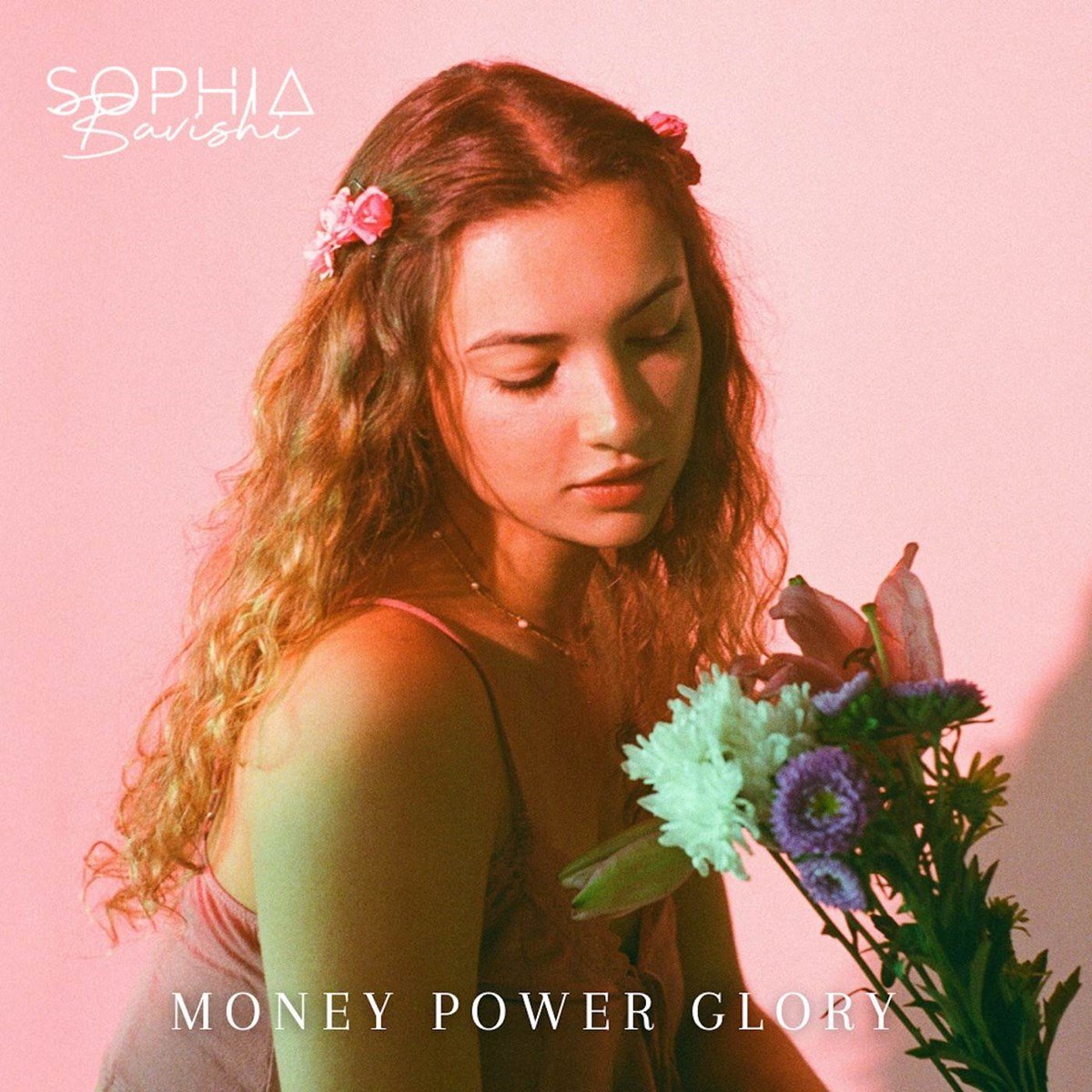SPOTLIGHT: In Between Melancholy and Digital Performance Experimentation, Sophia Bavishi Shares Her Version of “Money Power Glory”
THOUGH SHE IS NOW SELF-DEFINED AS A “DIGITAL PERFORMER” — this hasn’t always been Sophia Bavishi’s brand. Starting out with a classical background in voice and musical theater at the age of nine, this was the extent of Bavishi’s experience until she was 16 years old. Then, she realized her deep love for music in particular and began to explore different genres of music, as well as songwriting.
Now, with her cover of Lana Del Rey’s “Money Power Glory,” Bavishi is turning other artists’ creations into her own, continuing this endless journey of experimentation she first embarked on years ago.
A fresh graduate from Arizona State University, her former teachers introduced Bavishi to the DAW Ableton, which she soon realized was very compatible with live performance.
Not having a band, the artist wanted that full production sound while performing, so she decided to start live looping and using the Ableton Push to support her performances. This allowed her to incorporate tracks, live loop instruments, and vocals to create an ambient environment.
Although the dream hasn’t changed, Bavishi didn’t always sing the type of music she does now.
“The goal of this project is to keep curating my live digital performances and to build my own shows,” she shares. “And my dream to eventually perform at large festivals.”
Her style is in constant development, although she most finds herself falling into the more indie alt-electronic route.
One thing’s for sure: most of Bavishi’s music comes from life experiences and emotions that she turns into songs as an attempt to deal with them. Vocally, she’s influenced by Sia: the range she holds, the effortless way her high notes sound while belting. Another big influence for her is trip-hop/electronic act Portishead, as well as the mysteriousness the band portrays in their music.
Portishead helped her refine her style, leading her to start using Ableton in her live shows and writing process. Bavishi is always open to experimenting with new genres because, as the artist herself said, “if there is a certain melody I come up with and it may be better in another genre, then I would love to experiment more.”
This is how her cover of Lana Del Rey’s track, featured in her third record, Ultraviolence, came to fruition.
“I have always loved Lana Del Rey’s songs growing up,” Bavishi shares. “During one of my voice lessons, my voice teacher, Cassidy Hilgers, introduced me to ‘Money Power Glory.’ After listening to the song a few times, I saw an opportunity to turn this song into a live loop and to live stack my harmonies. I loved the ambience this song already had, and I wanted to create an even more euphoric version of it. I ended up live looping most of the production on the Ableton Push.”
Prior to “Money Power Glory,” one of Bavishi’s favorite singles was “Running Out Of Time,” written in between high school and college.
“I had decided to stay in Arizona, but my parents ended up having to move away during the time I would be going to college,” she says. “I felt like I was running out of time to spend with my family while they were still here. ‘Running Out Of Time’ was a very vulnerable song to write and release, but I am proud that it is out for the world to hear because I find myself relating to that saying with so many other scenarios.”
Another one of her favorites is “This Is Who We Are,” based on the uncertainty of being on an on-and-off basis with the person you think is right for you.
“It is the story of going back and forth with that one person who is the right one, but your lives never quite sync up right for you to be together until eventually you find your way back to one another,” she explains. “It is another very vulnerable song I have released, but it means so much to me.”
Bavishi’s go-to producer at the moment is Curtis Douglas, who’s helped her produce, mix, and master her songs. When deciding which producer to work with, it all depends on the relationship they can build, how the artist vibes with them, whether the collaboration feels easy, and so on. Douglas checks all the boxes for Bavishi because, as she states, making music can be emotionally draining.
It can also be draining to juggle a musical career and a full-time job teaching music theater to kids. Bavishi hopes to embark on a West and East Coast tour characterized by a dreamy, ambient set and lights programmed to match her sound.
“My first tour will most likely be done very DIY and on the road in a tiny van, and that makes me excited because I could also get a bit of that van life,” she daydreams.
So what does the future have in store for this young yet ambitious artist? Besides collaborating with Melanie Martinez (“I think she has one of the most unique voices and the melodies this girl can create are insane”), she hopes to continue to grow her skills and techniques as a musician, while also working on getting an EP released and starting to plan a small tour.
“I am in no rush for anything,” she says, “and I want to take time while I still have it to grow as an artist and to write and record as much as I want while no one is watching over me with a microscope.”






